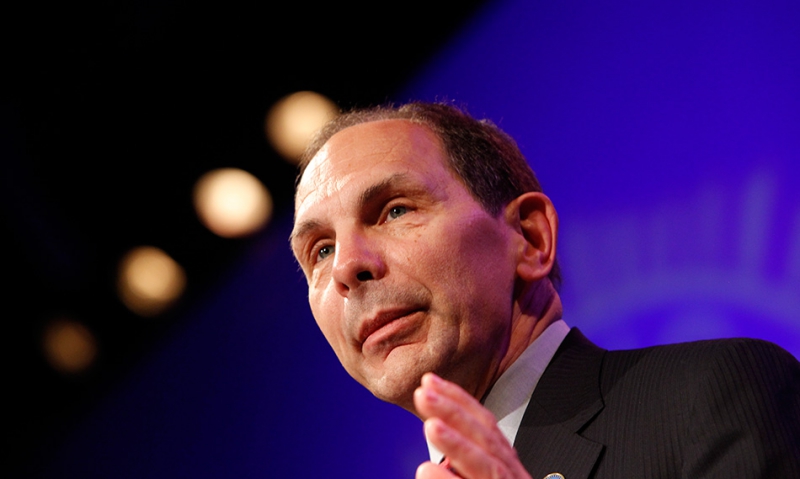
The new VA secretary is guided by the words, ‘Choose the harder right instead of the easier wrong.’
Secretary of Veterans Affairs Robert McDonald assured The American Legion at its 96th annual national convention in Charlotte, N.C., that “your contributions to VA reform discussions have been of great help…. There’s no question that this is a critical moment for VA.”
The former chief executive of Procter & Gamble said on Aug. 26 in his speech that the Department of Veterans Affairs “may not be concerned about quarterly profit and loss statements or shareholder value, but it does have a bottom line -- veterans,” and that VA “will get beyond its present difficulties and be the stronger for it.”
A graduate of the U.S. Military Academy whose father served in the Army Air Corps, McDonald said “some people’s behavior was at odds with VA’s mission and core values…. The truth of the matter is that we’ve failed in a number of ways. We need to do better – much better.”
Changes aimed at correcting VA’s problems, McDonald said, are being made in the areas of process, leadership and resources.
Process initiatives have included outreach to more than 266,000 veterans to get them off wait-lists and into VA facilities for treatment. In the past two months, VA has made nearly 912,000 referrals for veterans to receive health care from private practitioners. Since May 15, the number of VA enrollees waiting for appointments has gone down by 57 percent.
VA’s current appointment-scheduling system is being updated and will be replaced by a superior, off-the-shelf commercial system. The 14-day goal for scheduling appointments, which was apparently not attainable at many VA facilities, has been removed as a criterion by which management performance is measured – thereby eliminating the temptation to falsify appointment records.
McDonald said too many VA leaders “failed to set the standard for honesty and integrity, and quash the culture of self-protection and retaliation. “ Since last May, two senior VA executives have resigned or retired, and three more have been placed on administrative leave, pending the results of investigations. More than 100 are now being conducted by VA’s Office of Inspector General and by the independent Office of Special Counsel; the FBI is also involved in some of the cases.
“In addition to leadership accountability issues, we’ve also addressing cultural issues and creating a more open VA,” McDonald told thousands of Legionnaires in the audience. “Performance awards for senior executives at the Veterans Health Administration have been frozen for fiscal 2014. “I’m listening carefully to veterans and to our VSO (veterans service organization) partners, like the Legion, and to our own hard-working employees.
“I want to know when you and other veterans are not being served well, and when you are.”
Discussing the allocation by Congress of an additional $15 billion for VA, McDonald said his department must demonstrate it “can operate with the same levels of efficiency, customer service and financial discipline as the best-run companies in America.
“We need to do a better job of forecasting. It’s essential for us to reliably predict future demand for services so we can make good decisions about budgets, about support systems and about people.”
Inadequate forecasting, McDonald said, was partially responsible for severe staffing shortages at some VA facilities. “And so recruiting is Job One right now.” Later in the week, he plans to launch VA’s new recruiting efforts at Duke University’s medical school. “Recruiting isn’t just for HR,” he said.
McDonald also promised to work on a problem that has long bedeviled VA and the Department of Defense (DoD): an interoperable electronic health record for servicemembers and veterans alike. “VA-DoD synergy is critical,” he said. “I see part of that as working with (Defense) Secretary (Chuck) Hagel to create an integrated records system.”
Admitting that his agenda is ambitious, McDonald said, “It can be done with The American Legion’s help and the support of all VSOs. Close collaboration and ongoing dialogue are priorities – no organization can operate successfully in a vacuum.”
American Legion National Commander Daniel M. Dellinger thanked McDonald “for the steps that you’ve already taken … to put trust back in for the stakeholders, our veterans. And believe me, sir, we’re looking forward to our partnership with you, and you will be hearing from us.”
- Veterans Healthcare

